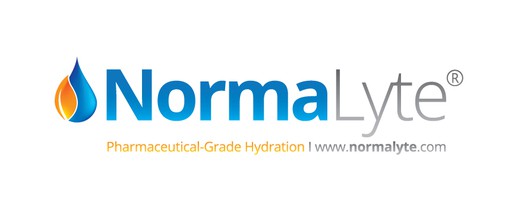Mayo Clinic Research Study Planned for
2015 Dysautonomia International Conference
Dysautonomia International has partnered with Mayo Clinic researchers to conduct a POTS research study during the 2015 Dysautonomia International Conference & Lobby Day, July 17-20th in Washington, DC. Mayo Clinic's world-renowned neuroimmunology lab will screen serum from POTS patient volunteers for 15 antibodies associated with dysautonomia.
We met our goal of raising $25,000 thanks to generous donors like you. We'll apply any donations over the $25,000 amount to the next POTS Research Fund project, which will be posted after the conference.
 | |
 | | About the Study
Dysautonomia International's annual Conference & Lobby Day has quickly grown into the largest conference on autonomic disorders, bringing together 400 patients, caregivers, physicians, researchers, government officials, business executives and non-profit leaders for a weekend of education, science, networking and fun. We are delighted to have Mayo Clinic researchers join us this year to advance research with the help of patient volunteers during the 2015 Conference.
The study will evaluate over 100 POTS patients for a panel of antibodies known to be associated with various forms of dysautonomia. The project will be lead by Dr. Wolfgang Singer, Assistant Professor of Neurology at Mayo Clinic. "In 2014, in a selected group of POTS patients evaluated at Mayo Clinic, we found that 33% had abnormal antibodies in their blood targeted at specific organs, most commonly the thyroid gland. These antibodies may be indicators for an autoimmune-basis in a subgroup of patients. In order to solidify and expand on these findings, we are now looking at how frequent these antibodies are in a larger, less selected group of POTS patients, and hope to eventually identify a specific autoantibody associated with POTS," explains Dr. Singer. |
Frequently Asked Questions
What antibodies is Mayo Clinic screening for as part of the 2015 Conference research study?| Anti-Neuronal Nuclear Ab, Type 1 | | Striational (Striated Muscle) Ab | | N-Type Calcium Channel Ab | | ACh Receptor (Muscle) Binding Ab | | AChR Ganglionic Neuronal Ab | | Neuronal (V-G) K+ Channel Ab | | GAD65 Ab Assay | | P/Q-Type Calcium Channel Ab | | Peripherin Ab | | DPPX Ab | | ANA/AMA/GPC Abs | | TG/TPO Abs |
Depending on the results of these antibody tests, the researchers may screen individual samples for additional antibodies.
Research Background
These antibodies are part of the Mayo Clinic Labs Autoimmune Dysautonomia Panel. Most of these antibodies attack or bind to receptors or ion channels that are essential for proper autonomic nerve functioning. These antibodies are known to be associated with various forms of dysautonomia.
Last year, Dr. Singer and a team of researchers studied serum from 33 of Mayo Clinic's POTS patients. They found that 33% of those patients had one of these antibodies and 15% had more than one of these antibodies. They hope to validate these findings and obtain additional information by repeating this study on a larger group of POTS patients during the 2015 conference.
Identifying the percentage of POTS patients that have these antibodies and comparing the antibody profiles to patient reported symptoms will help doctors determine which POTS patients should be tested for these antibodies. Identifying patients with these antibodies may help guide treatment decisions, and may lead to new ways to treat POTS associated with autoimmunity.
Additionally, data collected during this study may be helpful in convincing insurance companies to pay for antibody testing in POTS patients, as some insurers currently prohibit reimbursement for this type of testing.
Is this the same as the POTS antibodies research project that took place in 2014 at the conference?
No, this is a separate study looking at different antibodies. In 2014, Dysautonomia International invited researchers from Vanderbilt University's Autonomic Dysfunction Center to conduct a serum collection during our annual conference in Washington, DC. The serum was sent to the University of Oklahoma, where researchers are testing the serum for alpha and beta adrenergic receptor antibodies. The results of this this study have not been published yet, but as soon as it goes to print, Dysautonomia International will be the first to share it through Facebook, Twitter and our website. Individual results from the 2014 study will be mailed to study volunteers by Vanderbilt after the study has been published.
How can I set up an online fundraiser to support this?
You can use Crowdrise or FirstGiving to set up an online fundraiser to benefit Dysautonomia International.
How can I host a live fundraiser?
There are fundraising ideas and educational materials available for download on our website.
Can I donate by check?
Yes, please print out this form and mail it in with your check to the address listed on the form. Please note "POTS Research Fund" in the memo line on your check.
How can I register for the conference?
Register here.
Can I stop by the conference to provide a blood sample, but not register for the conference?
No, for security reasons, only registered conference guests with access badges will be admitted to the conference center.
Additional Information for Conference Guests
We provide answers to the most common questions here. Dr. Singer will host a Q&A session on the project during the conference on Saturday morning, before enrollment for the study begins.
Do I have to participate in the study if I attend the conference?
No, all research studies are done on a volunteer basis. There is no requirement to participate.
What does the study consist of?
-Consent form
-Brief physical exam (with your normal clothes on, but no compression garments)
-A survey about your symptoms and medical history
-Measurement of your heart rate and blood pressure laying down and then standing up for 5 minutes
-Blood draw (1 vial of blood, about 2 teaspoons)
Who is eligible for the study?
-Individuals diagnosed with POTS by a physician
-Ages 18 to 50
Please note, we are waiting to hear from Mayo Clinic's Institutional Review Board (IRB) on whether the age range can be expanded to include younger patients. If the IRB approves our request to include younger patients, we will post any news here when we have an update.
Can I participate in the study if I've already been tested for these antibodies?
Yes! It doesn't matter what your prior results were.
Do I have to go off of my medications to participate in the study?
There is no need to go off your medications to participate in this study.
Should I bring my medical records?
No, the researchers won't be looking at medical records during the conference. If medical records are needed, the researchers will contact you after the conference if you have given them permission to do so.
If I register for the conference, can Dysautonomia International guarantee I will be tested for these antibodies?
No, the decision to include or exclude an individual from the study is solely up to the researchers.
Will study volunteers get their blood test results?
Yes, but this can take a long time, as the results may not be sent until after the study is published. If you are in a rush to get the results, you can ask your personal doctor to run the test for you.
| | |




